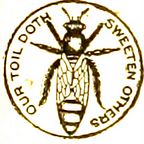Informational Privacy Torts in California
The origin of common law privacy torts can be traced back to “The Right of Privacy” (4 Harvard L.R. 193 (Dec. 15, 1890)), an influential law review article written by Samuel Warren and Louis Brandeis, and published in the 1890 Harvard Law Review. This essay is widely regarded as the first publication in the United States to advocate a right to privacy (defined primarily as a “right to be let alone”) and credited for leading to the recognition of a common law right of privacy by US state and federal courts.
As early as 1931, California courts recognizing invasion of privacy as a tort. The first case recognizing a right of privacy in California was Melvin v. Reid (1931) 112 Cal. App.. 285, 290. In Melvin, the defendants, using the plaintiff’s true maiden name, had produced and exhibited a motion picture based on events of the plaintiff’s life, including her having been a prostitute many years earlier ( Id. at pp. 286–287.) The appellate court held the use of the plaintiff’s true name “was unnecessary and indelicate, and a willful and wanton disregard of that charity which should actuate us in our social intercourse.” ( Id. at p. 291.) In short, such use was “not justified by any standard of morals or ethics known to us.” ( Id. at p. 292.)
In the early 60s, another influential article by William Prosser on privacy torts was published in the…
